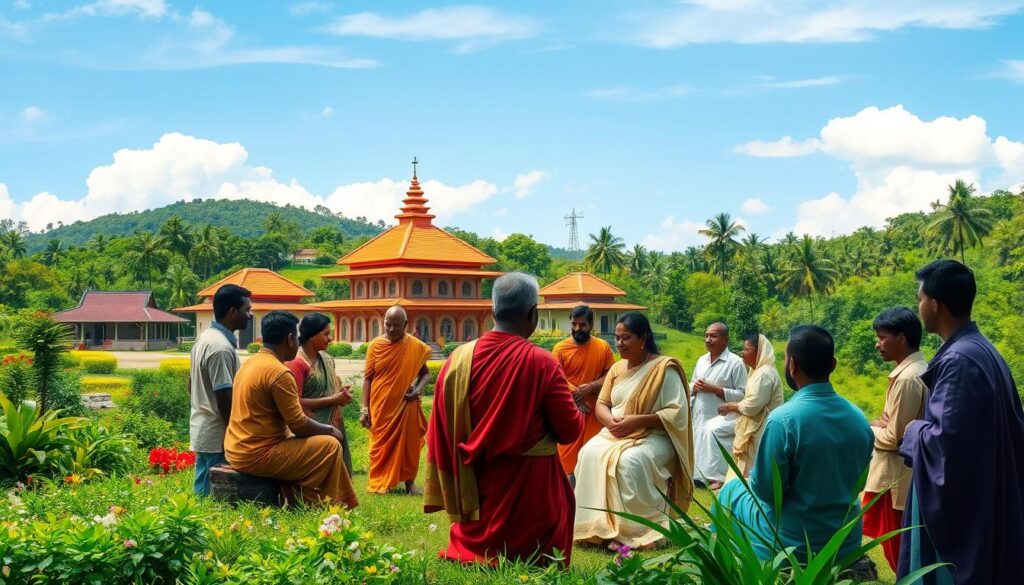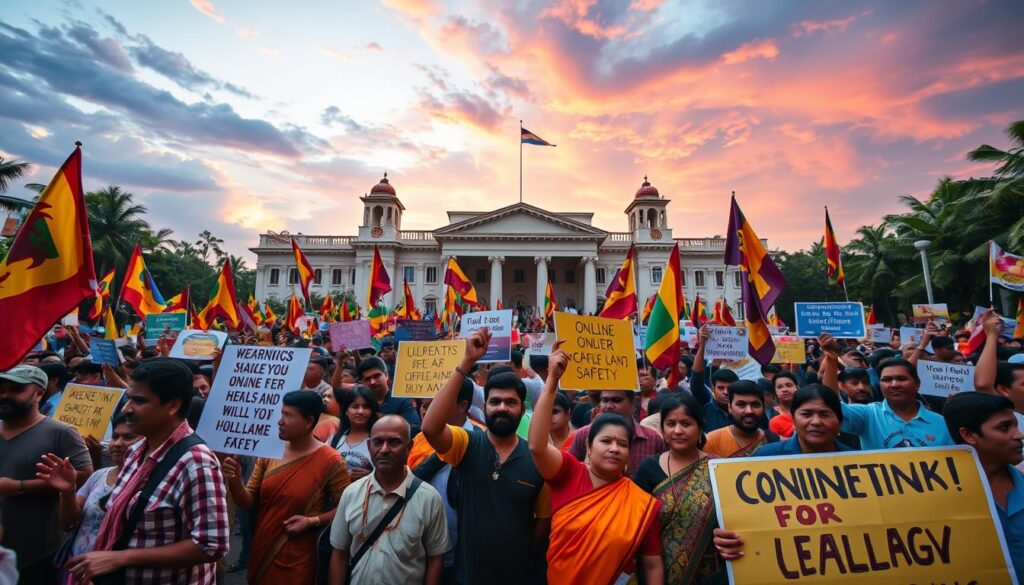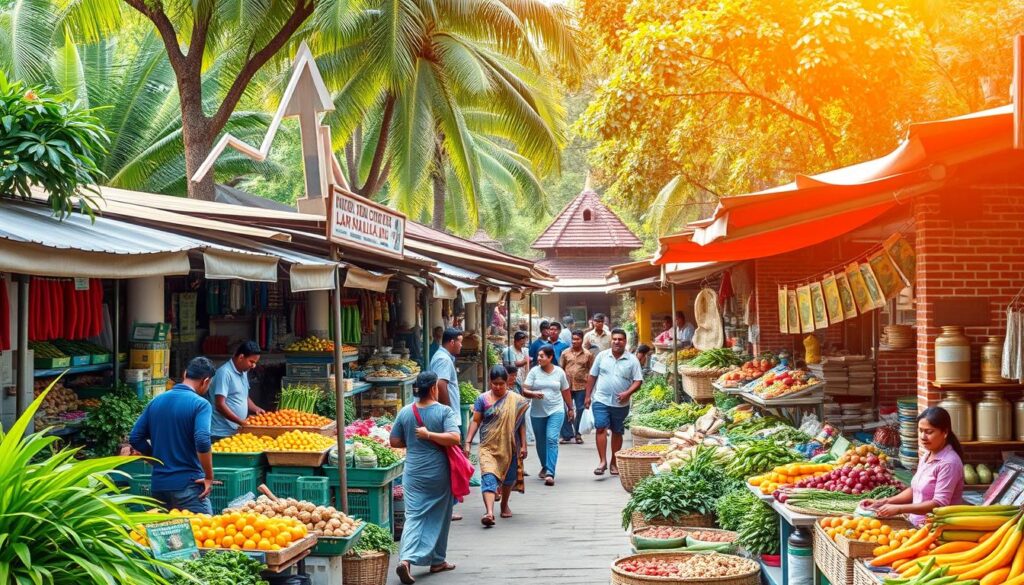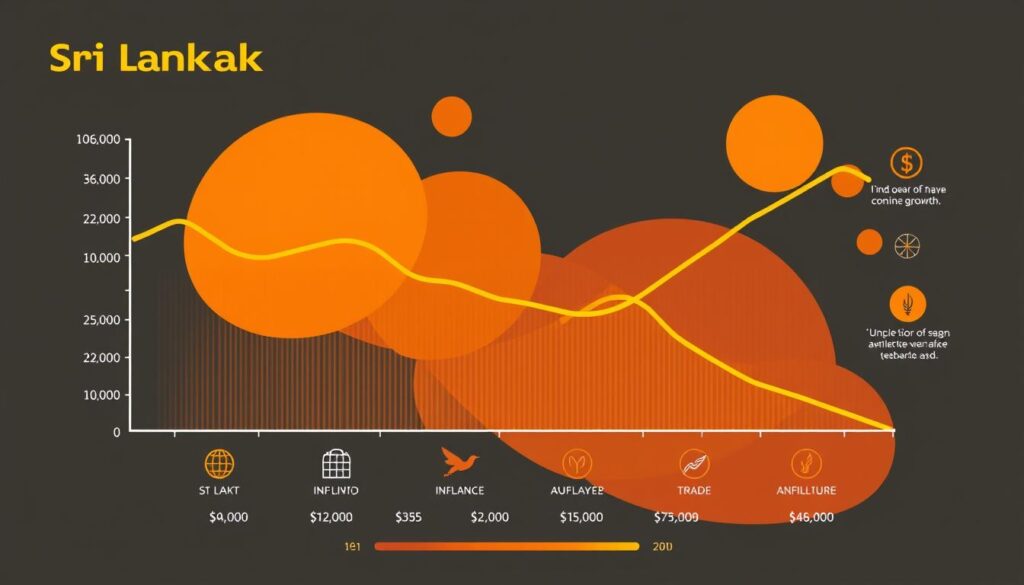Sri Lanka Makes Condé Nast’s Top Travel Spots for 2024
Sri Lanka has secured a spot among the best places to visit in 2024. Condé Nast Traveler, a prestigious luxury travel magazine, recognized the island’s unique appeal. Sri Lanka’s blend of natural beauty, cultural heritage, and emerging travel experiences caught their attention.
Sri Lanka’s tourism is bouncing back stronger than ever. The focus is on sustainable growth and showcasing diverse attractions. From tea-filled highlands to palm-fringed shores, Sri Lanka offers authentic encounters and luxurious escapes.
Condé Nast Traveler’s endorsement highlights Sri Lanka’s resilience and appeal. This recognition will likely drive increased interest from affluent, independent travelers. The magazine’s global audience is sure to take notice of Sri Lanka’s inclusion.
Key Takeaways
- Sri Lanka named one of the best places to visit in 2024 by Condé Nast Traveler
- Luxury travel magazine highlights Sri Lanka’s natural beauty, cultural heritage, and emerging experiences
- Sri Lanka tourism rebounds with focus on sustainability and showcasing diverse attractions
- Endorsement from influential publication to drive increased interest and bookings
- Tea-filled highlands and palm-fringed shores offer range of authentic encounters and luxurious escapes
Condé Nast Traveller Highlights Sri Lanka’s Allure
Sri Lanka has caught the eye of Condé Nast Traveller as a top travel spot for 2024. The island nation blends luxury, wellness, and eco-friendly experiences. South and Central Sri Lanka are especially captivating regions.
Sri Lanka Ranks Among Best Places to Go in 2024
Condé Nast Traveller readers have given Sri Lanka high praise. In the 2021 Readers’ Choice Awards, Sri Lanka scored 93.96 out of 800,000 responses. This tops its previous year’s rating of 91.79.
The recognition shows Sri Lanka’s appeal to global travelers. Many seek authentic experiences and off-the-beaten-path adventures here.
Focus on South and Central Sri Lanka
South and Central Sri Lanka lead the country’s tourism revival. These areas offer natural beauty, cultural heritage, and luxury stays. Travelers can explore UNESCO-listed Galle Fort and lush tea plantations in Hatton.
The region’s appeal grows with new offerings. Meraki, a nine-room eco-friendly retreat in Matara, opens in early 2024.
| Destination | Attraction | Opening Date |
|---|---|---|
| Galle | Galle Literary Festival | January 2024 |
| Galle | Gourmet Galle Food Festival | January – March 2024 |
| Matara | Meraki Retreat | Early 2024 |
Luxury and Wellness Boom from Tea-Filled Highlands to Palm-Fringed Shores
Sri Lanka’s tourism is shifting to experience-based models for high-value tourists. The tea-filled highlands offer serene escapes for wellness seekers. Hotel Ceylon Tea Trails in Hatton is a prime example.
The south coast boasts pristine beaches and luxurious resorts. A new Hilton resort near Yala National Park adds to the coastal allure.
Sri Lanka Among Condé Nast Traveller’s ’24 Best Places to Go in 2024
Sri Lanka has earned a spot in Condé Nast Traveller’s “The 24 Best Places to Go in 2024”. The island’s south and central regions blend surf and wellness cultures. Sri Lanka is focusing on sustainable tourism to protect its natural wonders.
Emerging Phoenix-Like from Economic Crisis with New Attractions
Sri Lanka is bouncing back from economic setbacks with exciting new attractions. The country boasts 22 national parks, showcasing diverse plant and animal species. Sri Lanka’s eco-friendly practices ensure its natural treasures remain pristine for future generations.
Food Festivals, Wellness Retreats, and Historic Hiking Trails
Sri Lanka is launching a new food festival, wellness retreats, and a historic hiking trail. The Pekoe Trail, completed in 2023, spans 186 miles through the Central Highlands. This path takes adventurers through local villages, tea plantations, and holy shrines.
| Destination | Recognition |
|---|---|
| Sri Lanka | Top 3 must-visit destinations for summer ’24 by Forbes Featured in Condé Nast Traveller’s “The 24 Best Places to Go in 2024” Included in Travel + Leisure’s “The 50 Best Places to Travel in 2024” |
| Mirissa Beach, Sri Lanka | Recognized among Tripadvisor’s “Best of the Best Beaches” for 2024 |
Global tourism is rebounding, reaching 97% of pre-pandemic levels in the first quarter. Sri Lanka is ready to attract a big share of the 285 million international travelers. The country offers authentic experiences for those seeking memorable journeys.
Conclusion
Sri Lanka’s recognition by Condé Nast Traveller as a top destination for 2024 highlights its resilience. The country has bounced back from economic challenges, offering diverse attractions to visitors. From food festivals to wellness retreats, Sri Lanka caters to various interests.
Tourist arrivals have steadily increased, with India being the largest source market. In just five months, Sri Lanka welcomed over 864,000 tourists. This surpasses half of the previous year’s visits during the same period.
The island nation’s popularity on social media platforms is soaring. Millions of TikTok views and Instagram hashtags showcase its appeal to travelers worldwide.
Sri Lanka prioritizes visitor safety through implemented measures. Fully vaccinated travelers can enter with a negative PCR test, avoiding quarantine. Non-vaccinated visitors must follow specific guidelines to ensure everyone’s well-being.
The country actively participates in regional tourism initiatives. Its involvement in the BIMSTEC Network of Tour Operators demonstrates commitment to industry growth. This collaboration fosters partnerships with neighboring nations, boosting tourism prospects.
Sri Lanka’s inclusion in Condé Nast Traveller’s list opens doors for growth. It attracts international brands and creates new business opportunities. The country is set to become a must-visit destination, contributing to its economic expansion.




